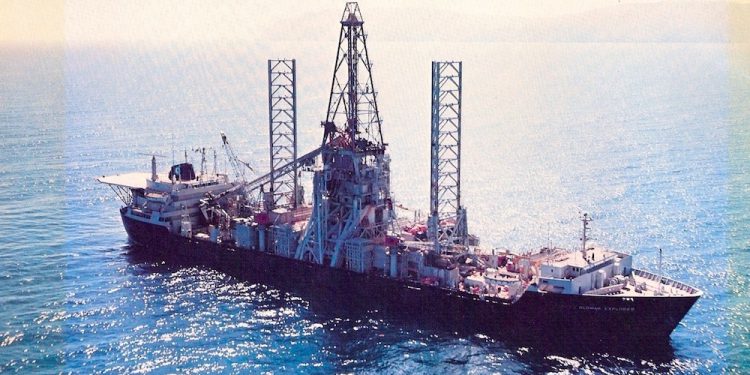Concerns have been raised over the prospect of deep-sea mining and consequent inevitable losses of biodiversity, with the Long-Distance Advisory Council (LDAC) and a number of NGOs in agreement on the need for a strong precautionary approach.
Deep-sea mining has been under discussion at LDAC meetings since last year and it has issued an opinion document. laying out its concerns. LDAC notes that in the opinion of deep-sea scientists, that ‘biodiversity loss is inevitable if deep-sea mining is permitted to occur and that this loss is likely to be permanent on human time-scales given the slow rates of recovery of deep-sea ecosystems.’
Disturbances such as chemical and sediment plumes generated by mining, as well as noise and light pollution, may also adversely affect deep-sea fisheries, in particular, though not limited to, deep-sea fisheries in the North Atlantic, resulting from the mining of polymetallic sulfides on the Mid- Atlantic Ridge and Arctic Mid-Ocean Ridge.
According to LDAC, concerns have also been raised by civil society organisations around the world over the potential irreversible damage to pelagic and deep-sea benthic ecosystems, including in seabed areas beyond national jurisdiction, established under the UN Convention on the Law of the Sea as the common heritage of mankind.
LDAC also points out that in the international areas of the world’s oceans where exploration licenses have been issued by the International Seabed Authority, which include the Mid-Atlantic Ridge, the mid-ocean ridges in the western Indian Ocean, and the central eastern North Pacific are important areas for commercially fished species such as tunas as well as important areas of migration for cetaceans, sea turtles and other species potentially adversely affected by seabed mining activities.
International moratorium
The LDAC agrees with the provisions of the resolution on international ocean governance adopted by the European Parliament in January 2018 regarding deep-seabed mining which ‘Calls on the Commission and the Member States to support an international moratorium on commercial deep-sea mining exploitation licences until such time as the effects of deep-sea mining on the marine environment, biodiversity and human activities at sea have been studied and researched sufficiently and all possible risks are understood.’
‘Given the serious concerns expressed by scientists and representatives of the civil society, and the likelihood of negative and potentially severe impacts of deep-sea mining on fisheries and fish species, other marine species and the marine environment, LDAC recommends that a moratorium on mining of the deep-sea needs to be in place in international waters without exemptions until the risks are fully assessed and understood,’ A spokesman for LDAC stated.
It also recommends that no deep seabed mining in the international areas of the world’s seabed under the jurisdiction of the International Seabed Authority should be permitted unless a very clear case can be made that society must mine the deep-sea for the benefit of humankind as a whole and not simply because it may be economically viable and profitable to an individual company or country.
‘The case for deep sea mining needs to be evaluated in light of commitments to conserve and sustainably use the oceans, through strengthening the resilience and taking action for the restoration of marine ecosystems, as well as initiatives to transition to circular economies, sustainable methods of consumption and production and related efforts as called for the in the UN 2030 Agenda on SDGs,’ LDAC said, adding that the European Commission and Member States should stop funding, facilitating or promoting the development of deep-sea mining and deep-sea mining technology and support these objectives.
‘In addition to scientific concerns, we note concerns over the way the International Seabed Authority (ISA) is structured and operates and again support the European Parliament’s concerns in this respect on its resolution in which stresses that “ensuring transparency, including public access to information, stakeholder involvement, public participation in decision-making and access to justice in environmental matters as required under the Aarhus Convention… is a matter of priority in addressing existing governance shortcomings; calls on the Member States and the Commission to work through the ISA in order to ensure transparency in its working methods and its effective capacity to assess environmental impacts, as well as ensuring the effective protection of the marine environment from harmful effects and the protection and preservation of the marine environment, as required under Parts XI and XII of the UN Convention of the Law of the Sea.”’
NGOs echo industry concerns
NGOs Seas At Risk and the Deep Sea Conservation Coalition (DSCC) have echoed the LDAC call for a moratorium on deep-sea mining in international waters.
‘Fishing industry representatives and NGOs in Europe are jointly raising concern with EU member states and the international community over the prospect of deep-sea mining and its likely impacts on fisheries and the marine environment. Scientists have warned that biodiversity loss will be inevitable and likely permanent on human timescales if the International Seabed Authority begins issuing licenses to mine the deep ocean seabed for metals such as copper, nickel, cobalt and manganese,’ said Matthew Gianni, co-founder of the Deep Sea Conservation Coalition, commenting that the International Seabed Authority, the intergovernmental organisation established under the UN Convention on the Law of the Sea, is in the process of developing regulations that would permit mining the international areas of the deep ocean seabed.









